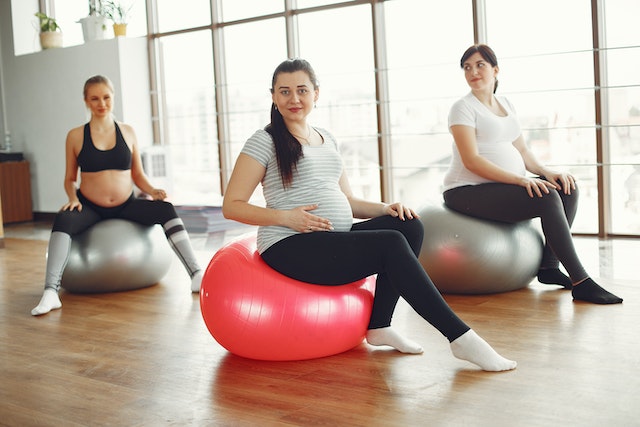Although doctors give a probable date for the labor, it often happens before or after the due date. Labour is when the baby is finally ready to be out.
The whole period of labor is very uncomfortable and confusing for women. They don’t know when it begins because they can’t differentiate between the pain of labor and the general uneasiness of pregnancy. Another thing is labor is not the same for everyone. Each mother feels differently during labor. In addition to that, variation in the labor period makes the whole thing more complicated.
But there are some signs which can mean that labor pain has started. If you can understand the labor pain before it becomes extreme, you will get enough time to consult doctors and go to the hospital. That’s why you should learn about the signs before it’s late.
1)Contractions
Contractions are well-known signs of labor.
In contractions, what generally happens is the uterine muscles become very tight for one moment, then it becomes loose, which produces relaxation. It is often accompanied by a stomach ache and a little bit of pain. During contractions, the uterus becomes stiff for one or two fleeting moments as a result of the release of Oxytocin.
If contractions are happening with an even time gap ( like each 5 /7 minutes apart)
2) Changes in the cervix area
With the delivery time getting nearer, a lot of changes happen in the cervix area. It becomes which is medically known as ‘Cervix Effacement’, which is an important signal that the time is near. It becomes soft and wide open.
Dilation of the Cervix area is also another notable sign of labor. Cervix dilated 3cm is the “early labor,” and when it’s dilated to 7-8cm, it means the final stage of labor.
3) Frequently urination
The whole period of pregnancy can be literally called the period of urination. Now when it is close to the end of the final, it becomes more frequent. Even more frequent than you feel during the pregnancy period. As the baby gets transferred to the pelvis area, the bladders face more results, and that leads to an increase of the urge to urinate.
4) Change in baby’s position
At the beginning of the labor period, the position of the baby changes in the mother’s body. It comes down in the pelvis area. With its head descending downwards, the belly area may get empty, and the baby bump gets lower.
Traditionally it is called a “baby drop,” and medically, it’s called lightning.
5) Relief in the chest area
As your baby is going downward in the pelvis area, the chest area becomes relatively free. As the little one is getting far from the lungs, breathing becomes easier.
If you suddenly feel relief in the chest area and find it easier to take breaths, this is also a sure sign of labor.
6) Back pain
Intense pain in the lower back area can mean that labor has already started. As the baby’s head is downwards, it creates a lot of pressure in the back. Back spasms are also a common sign of labor.
7)Diarrhea
Due to the release of a hormone named prostaglandins, several digestive problems occur in this stage. Diarrhea, along with loose motion, is one of the common signs of early labor. Sometimes vomiting can also happen as the body is preparing for the delivery.
8)Bloody Show
With the delivery time approaching near, a smear of blood can be seen in the vaginal area.
The thick mucus in the uterus area, which has produced a layer, becomes soft, and it often comes out, sometimes in one piece and sometimes with vaginal discharge.
The vaginal discharge becomes thicker as the mucus plug comes out in the discharge. It also contains tinges of blood. This is called the “bloody discharge,” and it is an indication that delivery is a few hours or a lesser time away.
9)Changing energy
In this stage, new mothers can feel ups and downs in their energy. They either can feel extraordinary energy which they don’t fill throughout the pregnancy, or they can fill extremely low. As the chest gets relief because of the baby drop, with proper breathing, many women feel light which increases their energy.
10)Water breaking
This is the most play-accurate and final sign of the labor.
The membranes become loose and come out through the vagina. Women can feel it before childbirth. This is the obvious sign of labor.
What to do when you are in labor
- The first thing every mother should do when she realizes that she is in labor is not get nervous or agitated but rather be calm. It is completely understandable if, due to hormone rushes, you feel many things but staying cool and not getting nervous is best for both the baby and the mother.
- There are several breathing exercises that help to push the baby to the pelvis. Taking a breath before and after every construction can ease up the process and help to cleanse the lungs. Lamaze breathing is also very helpful during labor.
- There are many relaxing techniques which can make calm, such as relaxation bath and massage. You can try to apply these.
- Lastly, You should immediately contact a doctor and go to the hospital as soon as possible. Further information can only be provided by professionals.
![]()












